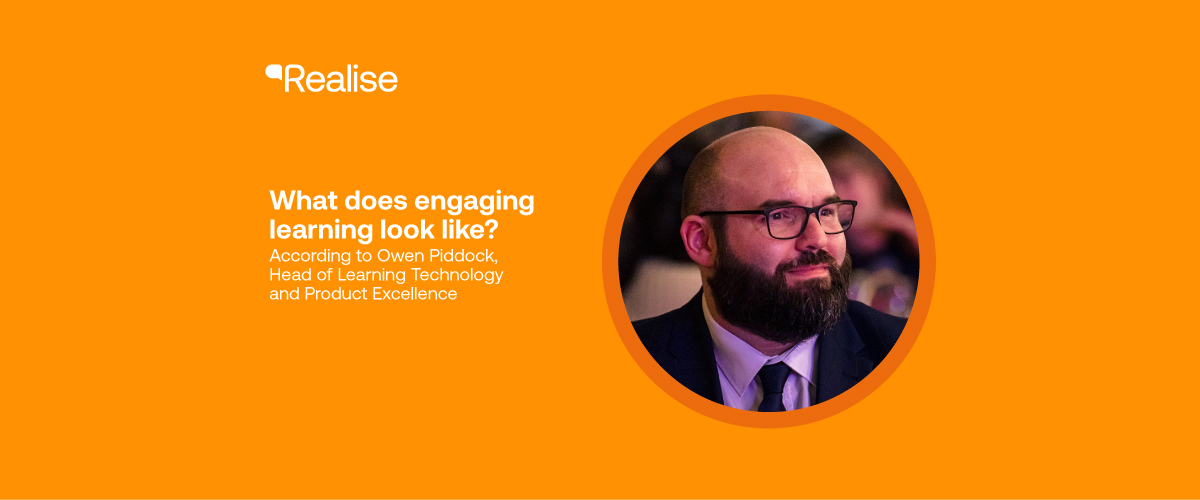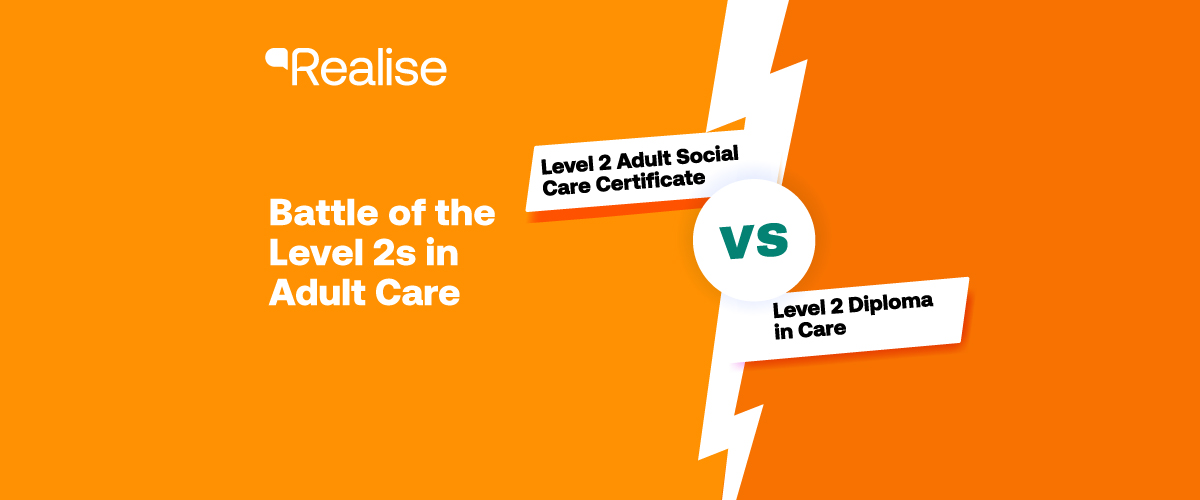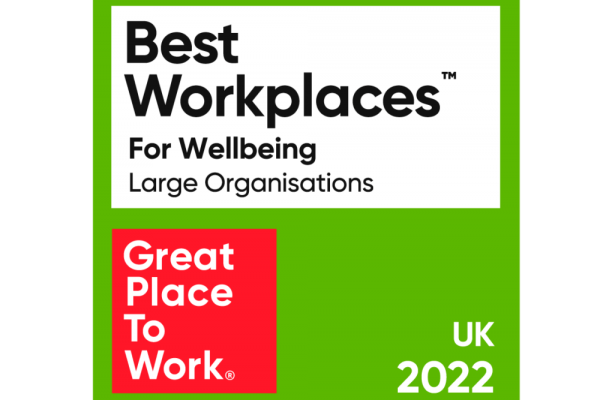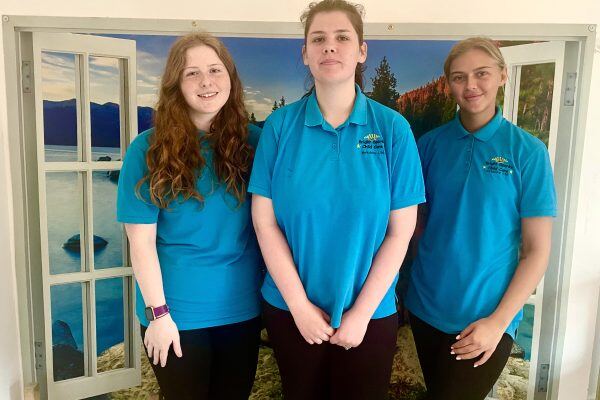

What Engaging Learning looks like in Adult Care
What Engaging Learning looks like in Adult Care
-
 Kate Hutchinson
Kate Hutchinson

Discover what engaging learning looks like according to Owen Piddock, our Head of Learning Technology and Product Excellence.
In Health and Social Care, truly engaging learning isn’t about passing a test - it’s about helping people feel more confident, capable, and compassionate in what they do. Whether you’re learning how to de-escalate a situation, or exploring how your values affect your work, the best kind of learning meets you where you are, makes space for curiosity, and gives you the courage to try, fail, and try again.
Let’s hear what Owen had to say on the matter….
“I thought about how to start this one, and figured I’d start with some cliché around how ‘we live in an interesting world’, or something to that effect. But you knew that already. To be slightly more serious for a second though, it’s true!
The availability of information to sink your teeth into has never been better, and with the advancement of AI tools, you can even have somebody, or more specifically something else, find that information for you. But the question is, does that make it engaging?
Well in my view, it can, and it can’t.
In reality, quite often we’ve got to be motivated to want to reach out and do the research to learn more about things. For me at least, that means I’m motivated to learn more about the things I’m interested in, and less motivated to learn things that I have to learn more about. What does that mean? It’s my view that, we can engage in learning of any subject, so long as that learning engages with us!”
With this in mind, here’s what I think makes learning engaging, in 5 steps:
- 1) It considers where you are now:
“It engages with you on a level that’s suitable for where you are now. That means using language that makes sense to you and examples that resonate with your workplace. The term ‘make it make sense’ springs to mind!”
Example in Health and Social Care:
A support worker just starting in a residential care home might not understand all the clinical terms used by experienced staff.
Engaging training would use plain language, case studies based on day-to-day care tasks, and relatable scenarios like helping a resident with dementia through a challenging morning routine. This approach helps build confidence without overwhelming new learners.
-
2) It gives you ideas, not answers:
“Great learning isn’t being given answers – but ways to explore what the answers could be!
Don’t get me wrong, the ‘answer’ should absolutely be there, but the journey should be one that is born from approaches, for example, if this medication was given wrongly, what’s the impact?”
Example in Health and Social Care:
Instead of just stating “you must always follow infection control protocols,” a good learning activity might ask: "Imagine you were supporting a service user with a wound dressing and forgot to wear gloves—what could happen? Who might be affected? What would be the consequence for them and for you?".
This invites critical thinking and helps learners understand not just what to do, but why it matters.
- 3) It should inspire you to turn ideas into action:
“Sometimes, there’s no better way of learning something than by practicing it. You can’t pick up a guitar and play Metallica straight away, it takes time!
Importantly, it’s okay to get things wrong, so long as you reflect on the experience and consider why it didn’t – engaging learning is about the journey and being inspired to try new things is part of that journey!”
Example in Health and Social Care:
After learning about person-centred care, a carer might be encouraged to try something new—like asking a non-verbal service user to choose clothes by pointing, rather than picking them out themselves.
The next day, they reflect: “It took longer, but I noticed she smiled when I showed her the yellow cardigan.” Learning comes alive when people experiment, reflect, and grow from experience.
- 4) It wants you to interact with it:
“Going back to technology, we have so many ways we can engage with learning material and content like videos and interactive books. Being given a chance to check you’re on the right track with quizzes, or watch/listen to others who have been on similar journeys can be empowering and makes learning more accessible!
Whilst reading and referencing can be effective for some; we aren’t all built the same way! Time with trainers should be the same – it’s about providing a sense of belonging to a group and facilitating a safe space for interaction!”
Example in Health and Social Care:
A well-designed safeguarding module might include:
- Real-life video interviews from people who’ve experienced abuse
- Activities to identify signs of neglect
- A quiz at the end to check understanding
This kind of interactivity helps learners stay focused and feel involved, not just passively watch or read.
- 5) It should encourage you to connect the dots:
“If engaging learning isn’t about giving you all the answers, it should give you space to connect the dots, so to speak. It should be holistic, and draw upon previous experience, as well as previous learning or study, to help you see where there’s interconnectivity. It shouldn’t forget what’s already happened, instead, it should help you build on it.”
Example in Health and Social Care:
When studying mental health, learners might be prompted to link what they’re learning to:
- 1. Past experiences supporting someone with anxiety
- 2. Earlier training on communication skills
- 3. Policies around equality and diversity
This kind of integrated thinking builds deeper understanding, showing how nothing in Health and Social Care exists in isolation.
Owen’s final thoughts...
"Its think it’s important to note that learning isn’t easy for everyone.
Sure, there’s people out there with a thirst for more knowledge and experience, but for many, there’s a real shift in mindset that’s required to get into the ‘learning zone’ for lack of a better term.
For those people (myself included) it needs to engage with us, it needs to help us see how it helps us practically, providing a safe space to ask those ‘silly’ questions that we might not always be to keen to share. The thing is, those ‘silly’ questions are often the ones that hold the most value – because they only happen when the material and content we have is making you think – and that can only ever be a good thing!”
A huge thankyou to Owen for sharing his thoughts on what makes learning engaging in the Health and Social Care sector.
Are you ready to get new skills and progress in your career?
If you’ve been inspired by what you've read, and you’re ready to gain new skills, start your journey today with Realise.
Discover our courses











